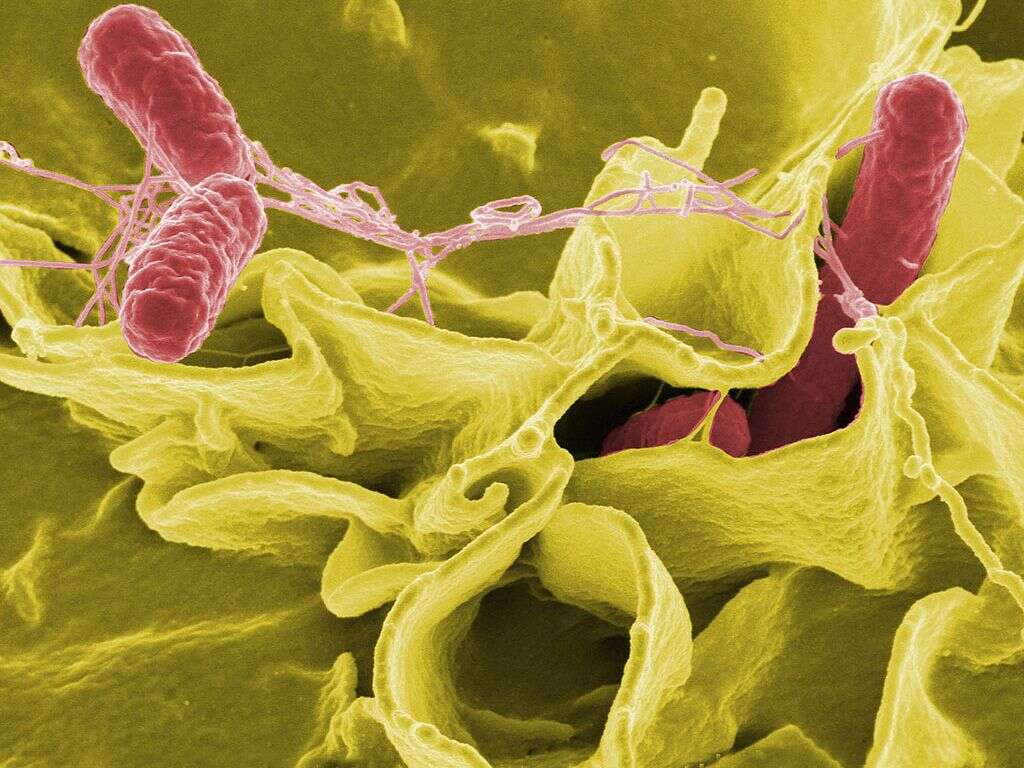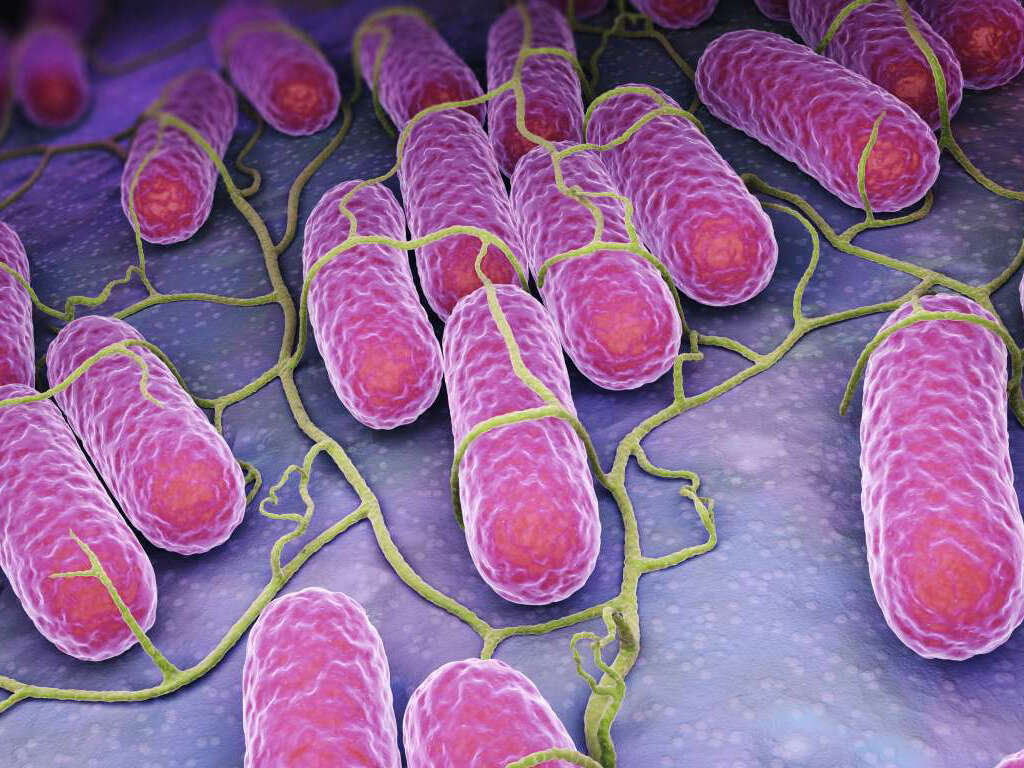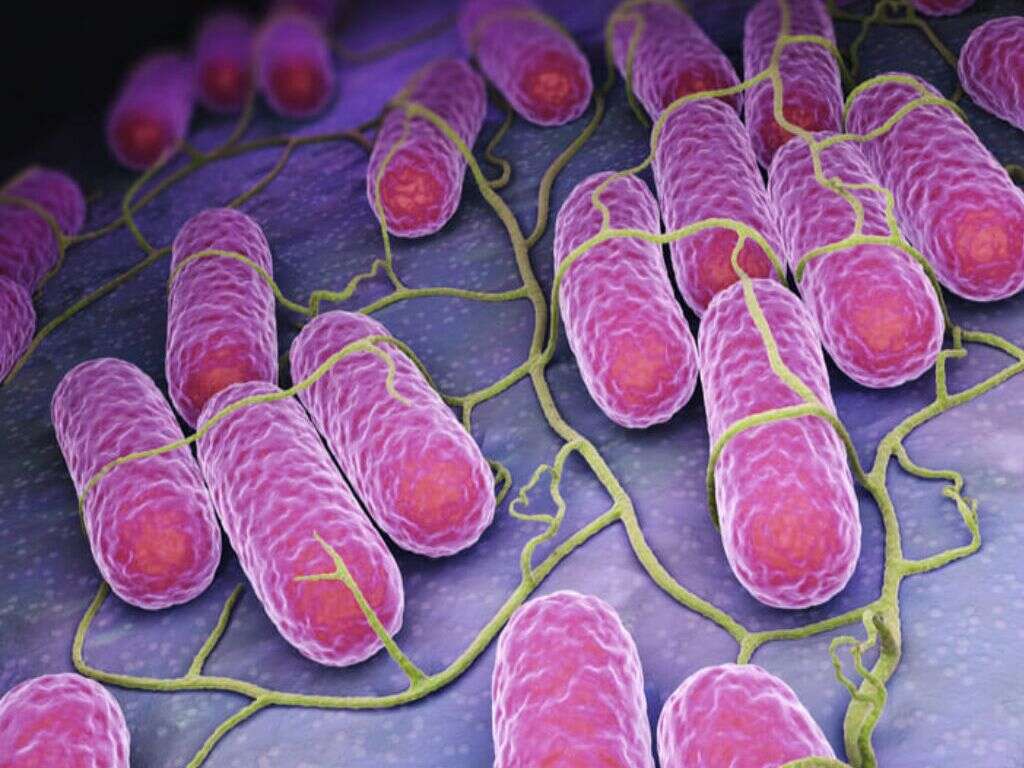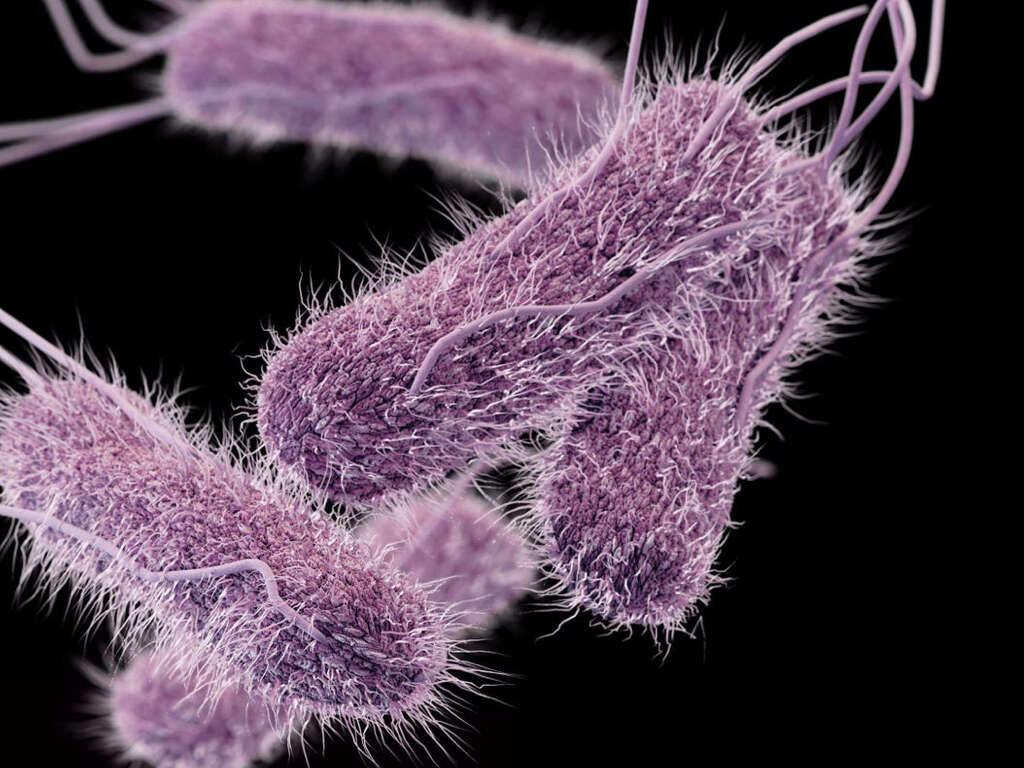10 Symptoms of Typhoid Fever
While our immune systems are very effective at protecting us from disease, we are not completely immune from attack. Some infections are more powerful than others and can cause serious harm even to people with the strongest of natural defenses. One of these is typhoid fever, and it can be a very serious infection.
Typhoid fever is caused by an infection by the Salmonella typhi bacteria and is caught through infected food and water. The symptoms can be very unpleasant and quite severe and death is a very real possibility. Typhoid fever is a condition that causes many deaths around the world so all necessary precautions should be taken to avoid it. If an infection does take place, medical treatment should be sought immediately.
Symptom #1: Fever
When a pathogen is present in the body, our immune systems go into action to combat it. Our immune systems have several lines of defense against pathogens, and one of them is to heat the body to a temperature that is dangerous to the pathogen. This is known as a fever and is a fairly common symptom in various illnesses including typhoid fever.
In typhoid fever, the body will begin each day at a low temperature, increasing as time goes by. The fever will ebb and flow in waves and will also cause hot flashes. The fever can reach as high as 104.9F (40.5C) in some cases and should be monitored closely.
Symptom #2: Hallucinations
Illnesses can affect us in many ways, although they will mostly cause pain or discomfort. When an illness begins to affect the brain or central nervous system, however, then they can also begin to affect us psychologically. Typhoid fever has the ability to affect the minds of people with the infection and can lead to symptoms such as hallucinations.
The hallucinations can mean people seeing or hearing things that are just not there. Typhoid fever can also affect the mind in other ways such as causing confusion and making people feel agitated. They could also begin to mumble and pick away at their skin, clothing and even at objects that are not there.

Symptom #3: Aching Muscles
Chemical weaponry is another line of defense that our immune system will occasionally deploy in the fight against pathogens. When a disease is present, our white blood cells will get to work and will sometimes use chemicals directly against the disease in order to try and kill it. The presence of the chemicals in the body cause the muscles to become inflamed, and this causes aches and pains.
Most of us have experienced these pains when we have had the flu, but they can be considerably more severe with typhoid fever. They can be debilitating and leave the person bedridden as a result. Not only are they more severe in intensity, they are also likely to last longer.
Symptom #4: Excess Sweating
Humans can boast the ability to perspire, which is an extremely valuable asset as it helps us to regulate our body temperature. As moisture in the skin evaporates, it takes heat away with it, helping to cool our bodies when we become too hot. If you are sweating too much, though, it may be a result of an illness.
When we have typhoid fever, our immune system will raise our body temperature in order to make the body an inhospitable place for pathogens. The body temperature will be adjusted up and down throughout the day, meaning there will be periods when our bodies are too hot and need to be cooled. This means sweating, so somebody with typhoid fever can expect to perspire a great deal.

Symptom #5: Diarrhea
When food enters into our digestive system, metabolism can take place. This basically means chemical reactions that allow us to extract energy and nutrients from our food. As this is occurring, our digestive systems will also be absorbing the water content. When we are ill, though, our food will sometimes be passed through our stomachs faster than usual.
This means that there is not time for enough water to be absorbed, meaning we have watery stools. This is commonly known as diarrhea and is a fairly common symptom of typhoid fever. In cases of typhoid fever, the stools take on a greenish-yellow appearance that is often referred to as pea soup. Severe diarrhea can lead to dehydration and also contribute to weight loss.
Symptom #6: Peritonitis
Our digestive systems are made from a series of chambers that perform various functions. These chambers are saved from the effects of digestive juices with a protective lining, and this lining has no defense against infection. Should a pathogen manage to take hold in the stomach lining, then an infection can spread quickly. This is known as peritonitis.
Peritonitis is a symptom associated with typhoid fever and it can be very serious. Inflammation of the abdominal lining can lead to intense pain and other symptoms. If not addressed, the infection can spread to and infect other organs. It is a condition that can be fatal so should be treated as an emergency.
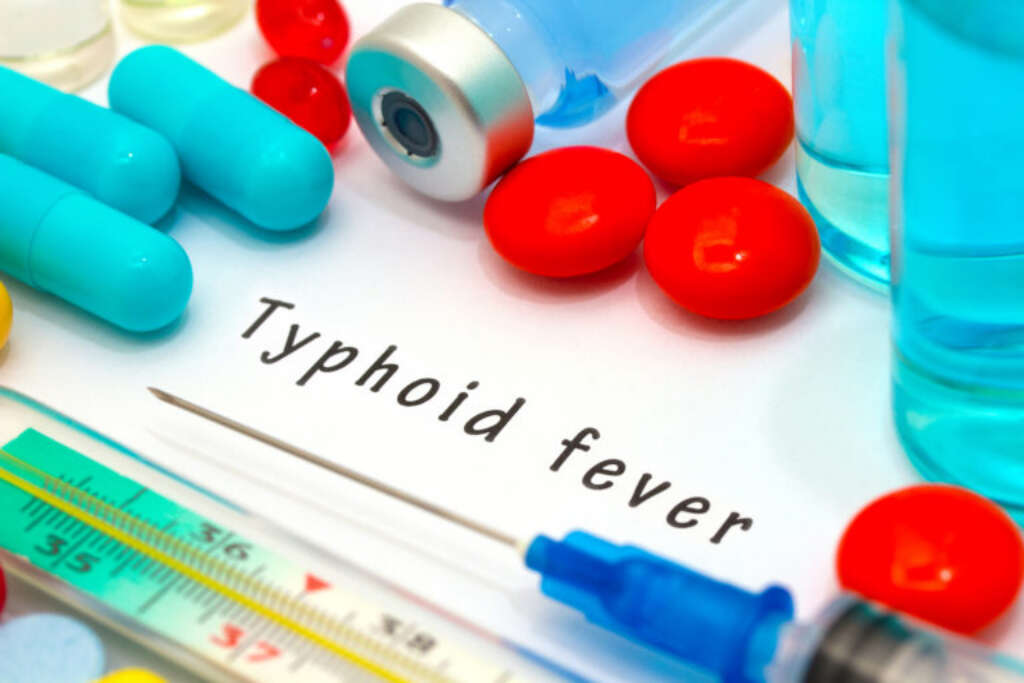
Symptom #7: Internal Bleeding
Most of us have cut ourselves at some point, and it is usually not something to be overly concerned about. If the cut is not too severe, the bleeding will usually stop quite quickly, maybe leaving us sore but otherwise unharmed. Bleeding inside our bodies can be far more serious. Internal bleeding is a symptom of typhoid fever.
Typhoid fever can cause infections of the lining of the digestive system, and this can lead to perforations. This, in turn, can lead to internal bleeding which can be a very serious condition. The loss of blood can lead to tiredness, lack of breath and an irregular heartbeat. In some cases, emergency surgery may be required to save the patient’s life.
Symptom #8: Rash
For the most part, our bodies are quite good at filtering out unwanted contaminants from our blood. Our organs clean out unwanted debris while our immune system deals with pathogens quite effectively. In the case of a serious infection, however, the immune system can struggle to keep up, and an unusually high volume of pathogens can be present.
These pathogens will sometimes clump together and can collect under the skin. This causes a rash on the skin which is known as rose spots in cases of typhoid fever. The skin can be sore and itchy as a result of the rash. Such rashes are present in about 10-20% of typhoid fever cases.
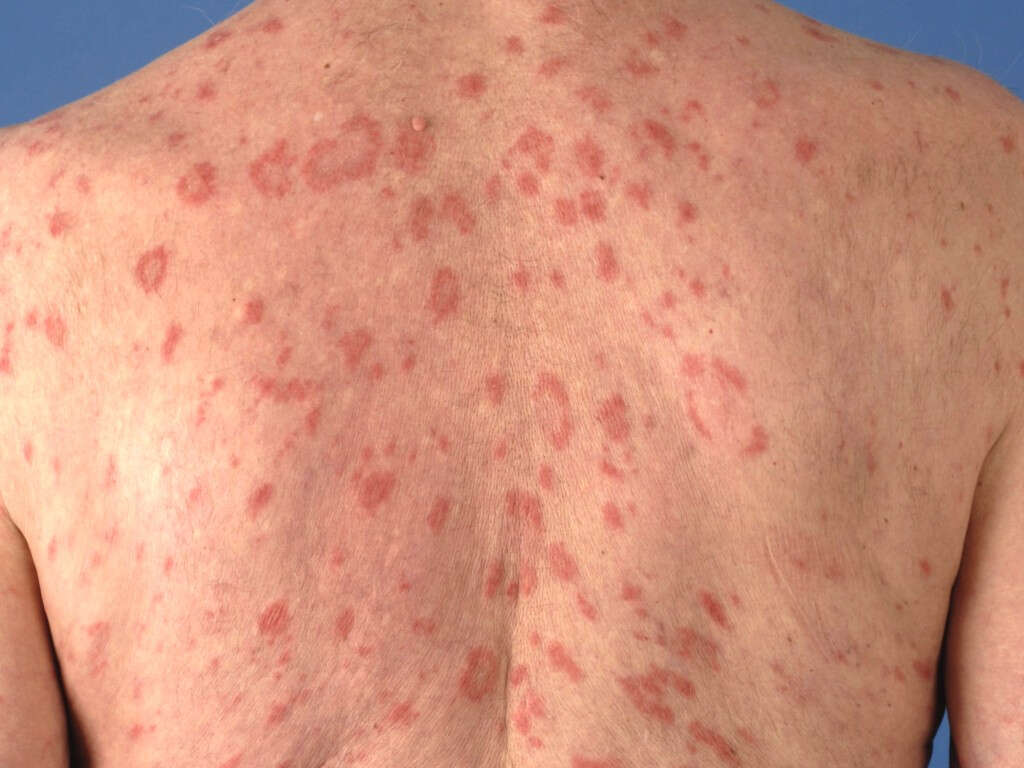
Symptom #9: Fatigue
The food that we eat helps to give us the energy and nutrients that we need. Much of this energy is used to power our muscles and feed our brains. We can get low on energy from time to time but after eating or sleeping we will usually be just fine again. Sometimes, though, this energy can be diverted for other uses, such as fighting typhoid fever.
With the body using up more and more energy in the fight against the infection, we have less available for moving and thinking. Those afflicted will frequently be tired, feel physically weak and also find it difficult to think clearly.
Symptom #10: The Typhoid State
Severe illnesses can absolutely ravage the human body. Some illnesses can cause patients to feel fatigued and not in the mood to do much at all, sometimes becoming virtually bedridden. In some illnesses, this can be quite severe, and it can be particularly noticeable in cases of typhoid fever.
Such is the impact of a typhoid infection on the body that it can leave the victim in a comatose state. The victim will barely be conscious at all and will spend much of the day laying there doing nothing. When this condition begins there is a very real possibility that other life-threatening conditions can develop as well.



